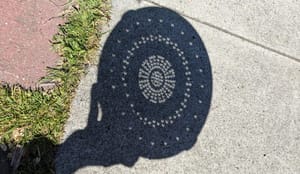Note: I started writing this post last Fall. Then, all this house construction happened, we got rained out of our home and had to move, and I kind of lost track of the post. It’s been sitting around in my “Drafts” folder since then. Rather than delete it, I decided to finish and publish it now.
During the last couple of years of the 20th century, I spent way too much time worrying about the end of the world. The popular form for that obsession then — in the narrow window between fears of nuclear holocaust and anxiety over terrorist attacks — was the Y2K bug. I knew a little about computer technology, just enough to be able to imagine the form such bugs might take in, say, a poorly-maintained Russian nuclear missile silo. You can imagine, as I did, a launch counter that depended on a date field with a two-digit year; when the time ticked over to 00-00-00, who knows what that counter might do. Launch decrepit but still volatile warheads in our general direction?
Failing nuclear error, there were still ways in which the switch from 1999 to 2000 could go completely haywire. Malfunctioning basic utilities, lights going out all over the cities, rioting in the streets. I was nervous enough about it that I actually stayed home on New Year’s Eve that year. No big sacrifice, given the homebodies that we are — but still a mistake. Watching the celebrations in downtown San Francisco on the TV screen, I suddenly realized that I’d blown it. I let my fear of a hypothetical unknown get the better of me, and it cost me a good night out on the town.
So I learned a thing or two — mostly, not to fall too much under the sway of my own naturally pessimistic and apocalyptic fantasies. People have tended to get freaked out about impending dooms of one sort or another for millennia, I suspect. Early Christians thought that the end of the world was at hand. Hindu and Buddhist religions both view our ages as the latest, and most decrepit, of a series of increasingly corrupt epochs. Twentieth century movements of various sorts have all viewed our time as one of decline, despite rather stunning evidence to the contrary.
That’s why I found it unsurprising, but pretty depressing, when I read Reagan speechwriter Peggy Noonan’s gloomy WSJ opinion piece (from October) about how she has the sense that things are falling apart. Even David Weinberger got caught up in the gloom, figuring that his kids will be less privileged than he is and that the overall direction of “the bus” is wrong. But, he adds a hopeful note:
But I think that’s also why so many of us are so invested in the Internet. That’s the fresh start we’ve been looking for. It’s a world that’s more connected, more creative and more fair than the real world.
Me, I’m trying hard to be less pessimistic about the future and to do so without become overly gullible or credulous. Now, I’m no Martin Seligman acolyte, but the guy does have a good point or two: If you focus exclusively on the apocalypse, your thinking will become apocalyptic. If you take some time to write down (in a journal, say) what you appreciate and what you’re grateful for, it shifts your perspective–and makes it easier for you to accomplish things that just might make the world a little better.
Like Weinberger, I think the Internet has great potential to shift the direction of world history, and it probably has already begun to do so. Google, del.icio.us, Digg — I welcome the mad explosion of interconnected knowledge that these and other technologies are spawning. It’s fantastic that news of a new hairy lobster can spread around the world in just a couple of weeks. I love sitting in the midst of this wild web of noise, ideas, music, and information. The trick is, what do you draw out of the infostream? Noise, confusion, and depression? Or can you make sense of the bits as they fly by and start to assemble a new picture, one that holds a bit more hope for the future?
For proof that taking the long view doesn’t have to be depressing, consider this modest exposition: Buckminster Fuller: Everything I know. Now there was an optimist.
